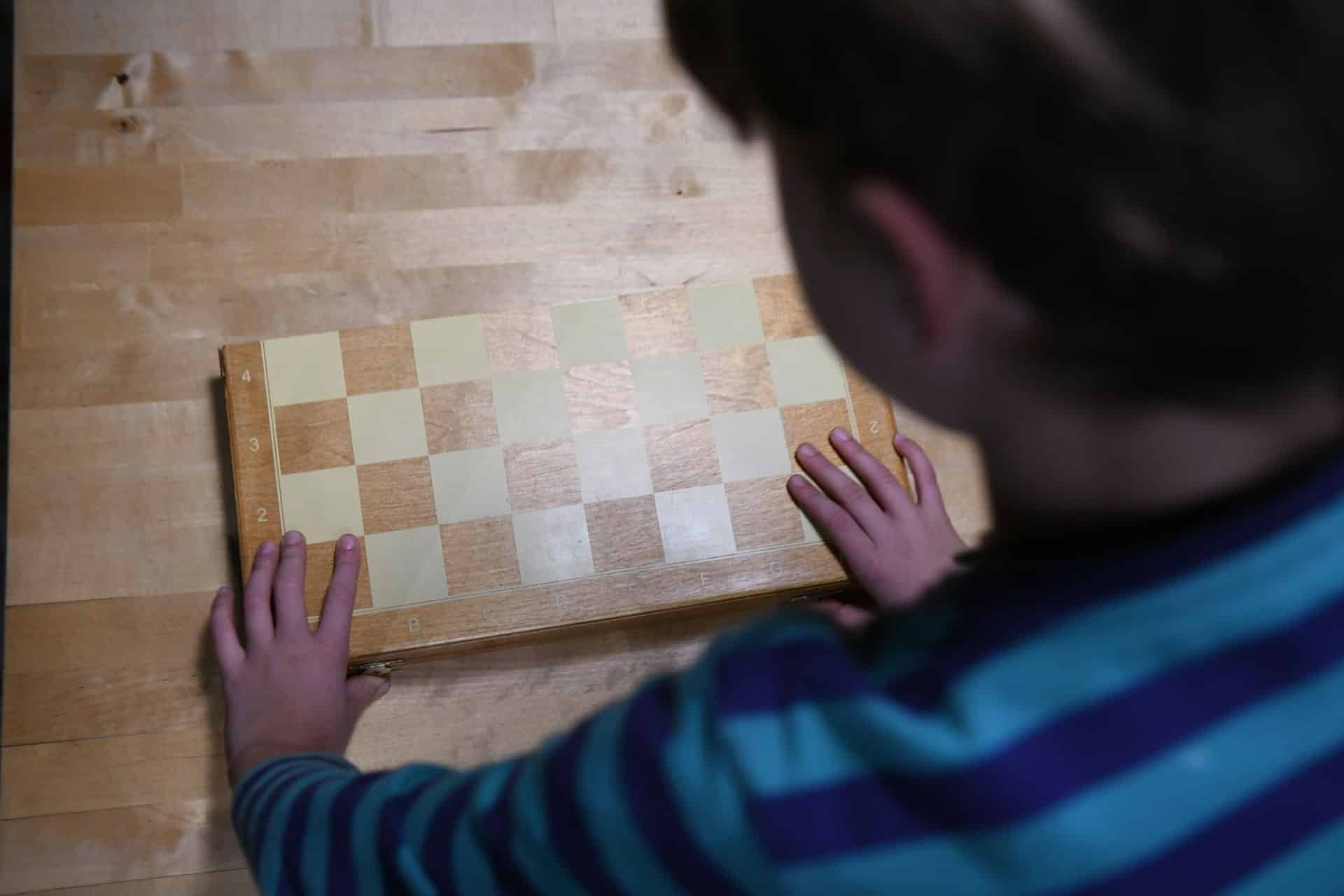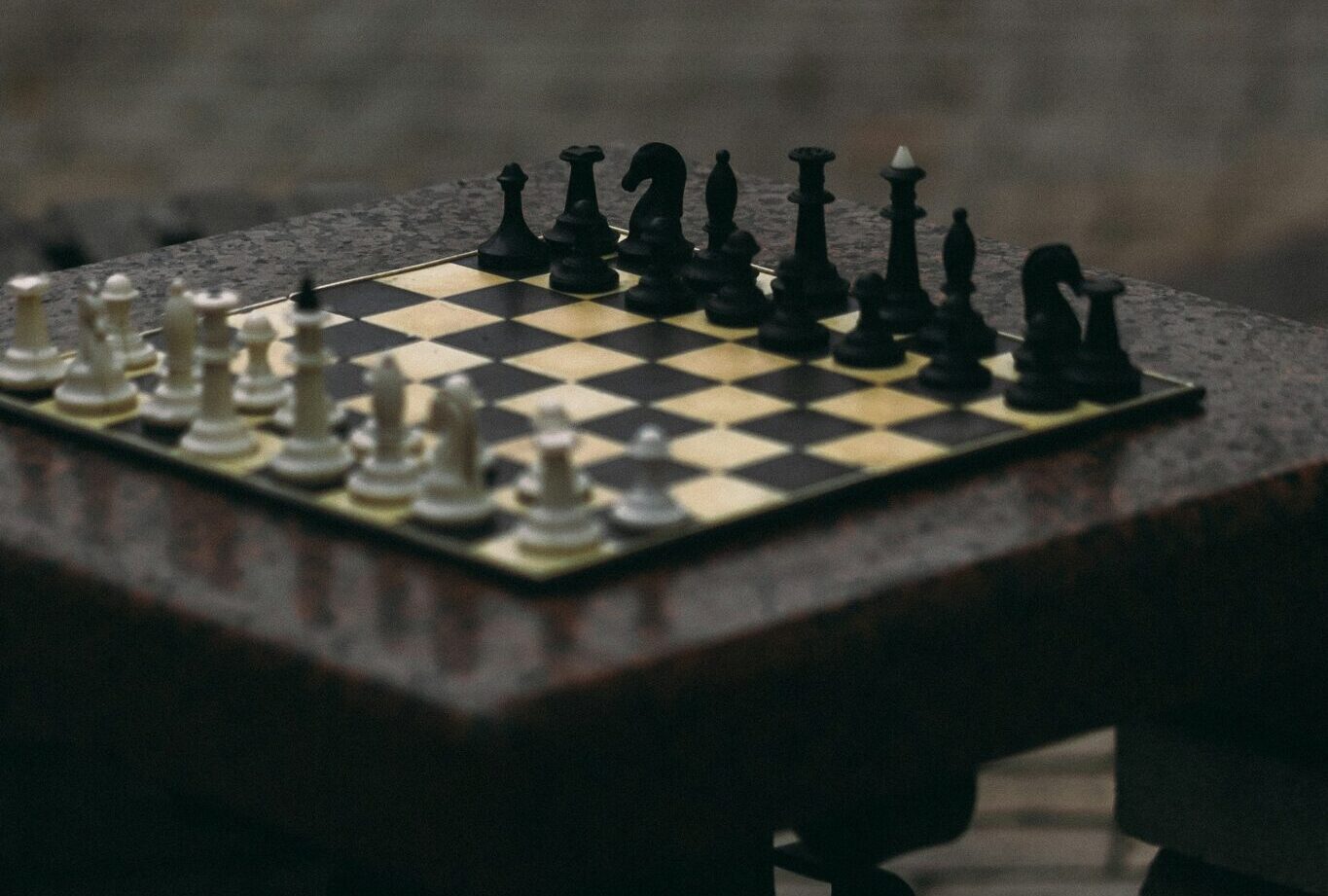Table of Contents
5 ideas to not be a beginner in chess
Getting better at chess is not an easy task, it requires work and effort, but you have a lot of fun along the way to mastery. For those who are starting we bring 5 ideas to stop being a beginner in chess.
This is the most difficult stage because we are still adjusting and getting used to nature to such a complex game as chess.
Fortunately, is the easiest to get over, and I’m pretty sure you will completely fall in love with this game while you give your first steps.
Once you implement these 5 simple keys into your chess you will feel different when you are playing. Studying chess will give you confidence and will let you feel comfortable in front of the board.
Learn chess patterns and concepts

Learning chess patterns is the first of our 5 ideas to not be a beginner in chess. It will let you know how you must act in the game when you see a certain configuration of pieces on the board. This can also be understood as learning typical plans of positions and openings.
For example, typical plans in the English opening, study these plans, and more importantly, understand why those plans work.
This will help you give yourself an objective during the game so you do not play as a headless chicken. Moreover, this practice helps you develop critical thinking over time.
It is the same idea with the chess concepts, what I mean by concepts is what people popularly call “general principles”, for example:
“Do not leave the king exposed in the center, the security of the monarch is first”
Although principles have their exceptions and it’s not always right to apply them in certain positions, they will give you a general idea of chess.
Learning chess principles like this will serve as the base to build up a bigger chess knowledge over time.
Double-check your moves
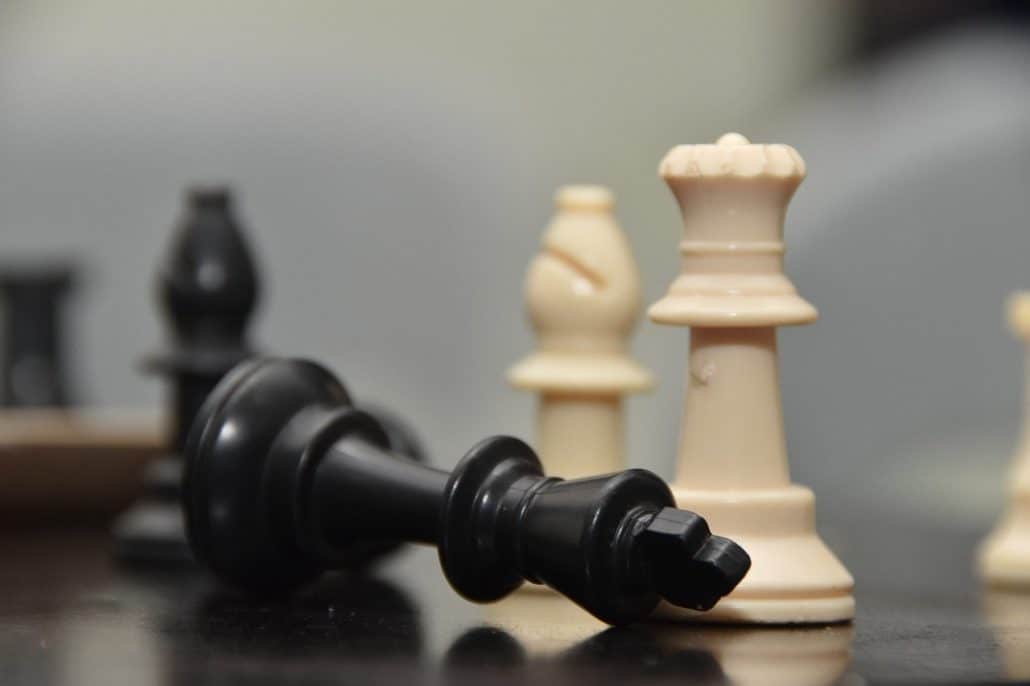
If you are reading this article, I will assume that you are already familiarized with chess tactics. If not, I suggest you investigate what chess tactics are to understand the following step, that will definitely be useful.
Double-checking your moves will surely grant you a better level of awareness over the board. This is done to develop that instinct, that sense of danger that every chess player has.
This is also helpful to develop intuition, which is a chess “sixth sense” which is absolutely indispensable in any chess player.
By checking your move once again before playing it, you will reduce the number of mistakes you make in your chess. This way you can dramatically reduce the number of lost games, that is for sure.
This is a good recommendation that almost everyone gives to beginners because it is simple but effective. This is one of the best 5 ideas to not be a beginner in chess, for sure, do it if you don’t want to be a beginner!
Put yourself in your opponent’s shoes
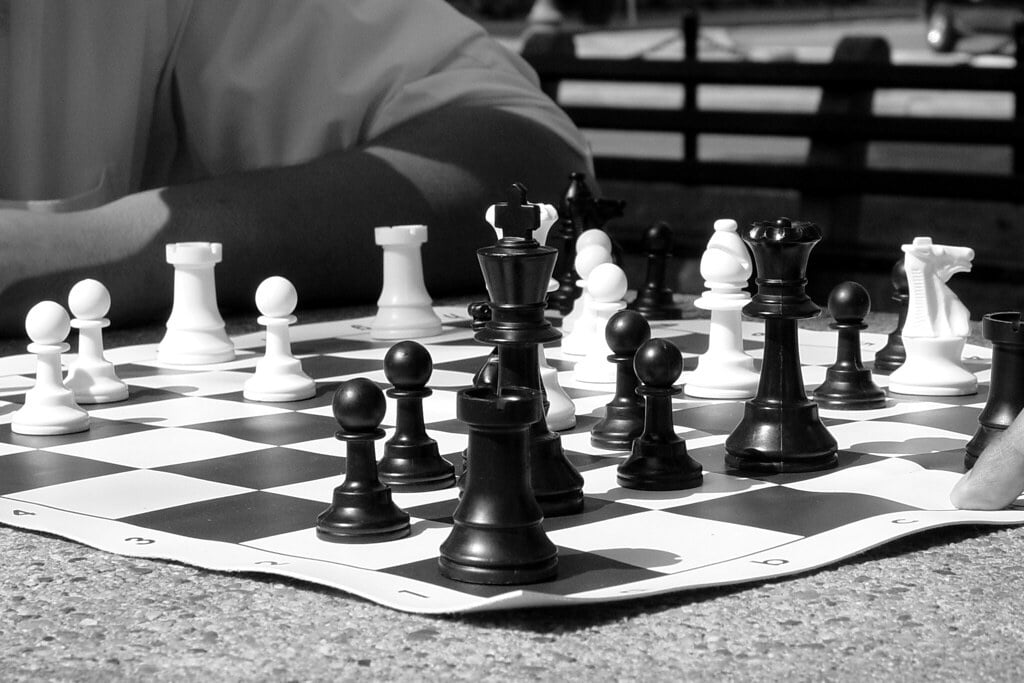
This is the first step into a chess “secret” that 90% of the chess players fail to apply in their games: Prophylaxis. Wondering “what is my opponent thinking about” will surely give you an advantage in your games.
The legendary IM Mark Dvoretsky gave A LOT of importance to this matter, saying that this was a fundamental part of the chess player.
Of course, not every beginner understands this at first, it is a little complicated, but these are 5 ideas to not be a beginner in chess, not 5 explanations.
But applying this practical advice in your games will surely increase that ELO quickly. Try to figure out your opponent’s plan, a good way to do it is to ask yourself “If a were my opponent what would I do?”.
Once you have it figured out, then ask yourself “How can I stop that?”.
If you do it correctly I assure you your opponent will not stand a chance.
Don’t overestimate material
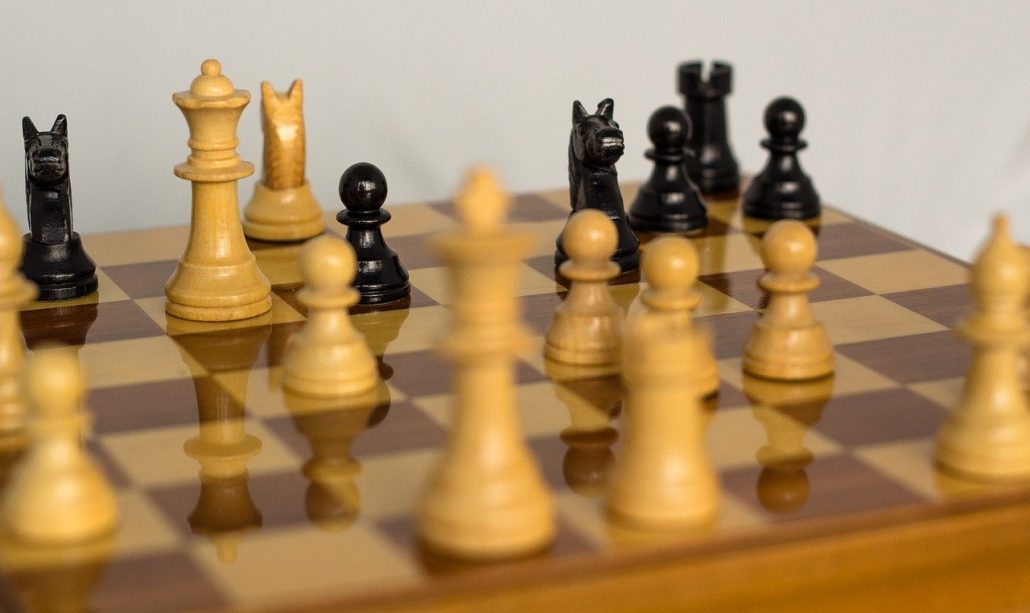
This is a common mistake beginners do, they give too much importance to their material. Maybe they have the chance to win a piece in the middle-game, but they don’t take it because they are worried about a pawn.
The material must never be considered more important than positional advantages (space, central control, attacking chances, pawn structure, etc.)
Remember material must always be second in the list of things that should make you worried. I recommend you review any material related to the development advantage in chess.
This is one key out of 5 ideas to not be a beginner in chess that will surely make the difference. The reason is that this is the main characteristic of a beginner, he worries excessively for the pieces being taken.
I have good advice for you: Before thinking of anything else look for the forceful moves (captures, check, and threats)
Every GM in the world does it this way, and that is the reason why they rarely miss a tactical combination.
Calculation!
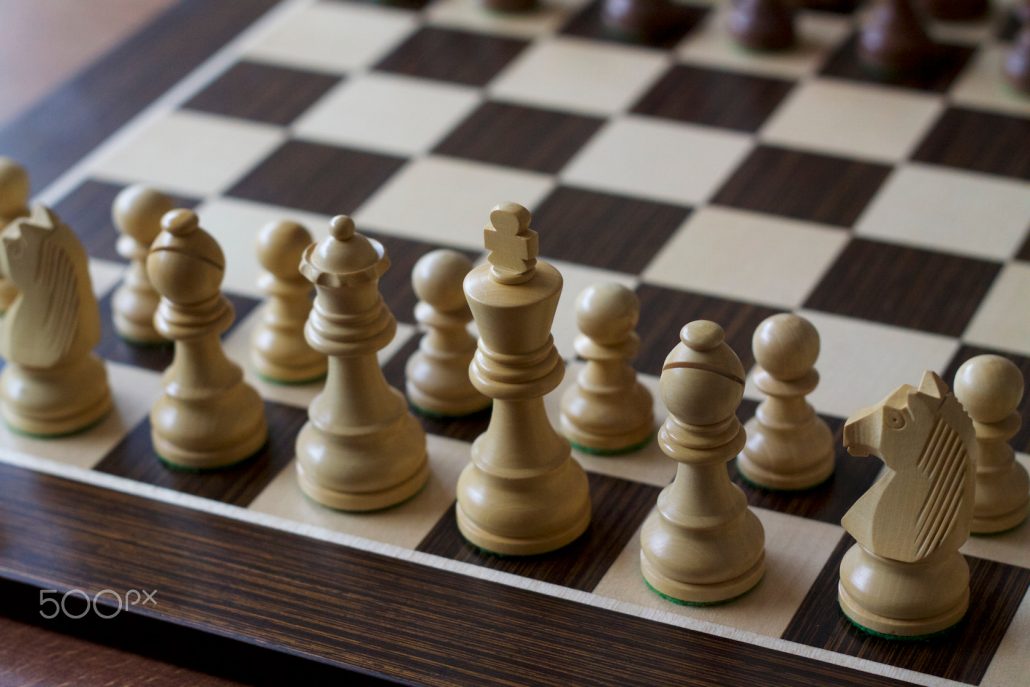
The last of the 5 ideas to not be a beginner in chess is absolutely the most general. When we talk about calculation we are talking about a very deep topic, but this is not an excuse to make it complicated for you.
Calculate your moves before making them, not just wonder, try your best to foresee the events of the game after you make the move.
This advice goes along with the one we mentioned before, making forceful moves will make your calculation easier because it reduces your rival’s options.
This is the best way to train your tactical skills, you can solve tactical puzzles to train your calculation, fun isn’t it?
This is a key step in chess, and once you get used to always calculate before making a move, you will notice a change. You will feel sure and you will perfectly know where you are in the game, you will never feel lost, or without any moves.
You may also like:
The Chess en Passant Move Secrets for Advanced Players



